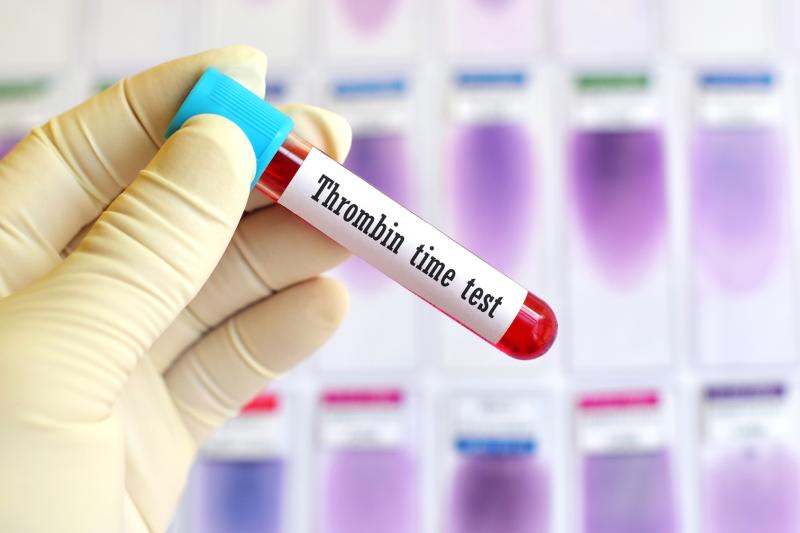
An elevation in international normalized ratio (INR) has been observed within 2 weeks of the start of concomitant therapy with warfarin and tyrosine kinase inhibitors (TKI; gefitinib or erlotinib), reports a recent study.
Several patients (5/6 with gefitinib, 83.3 percent; 6/7 with erlotinib, 85.7 percent) during concurrent therapy had significant INR elevations (p<0.05) as compared with INR at baseline. Relative to the baseline value, the median INR increase in the presence of gefitinib and erlotinib was 1.8- and 1.6-fold, which was observed at a median of 7 and 9 days, respectively.
In vitro (S)-warfarin 7-hydroxylation activity was inhibited by 36 percent and 27 percent in the presence of 1 µM gefitinib and 10 µM erlotinib, respectively. These were similar to the steady-state plasma levels of the TKIs following standard dosing.
“To avoid excessive anticoagulant response by warfarin, INR should be carefully monitored weekly and dosage adjustment of warfarin might be recommended during the first month after the start of concurrent TKI therapy,” the authors said.
This retrospective, single-centre, observational study assessed the frequency, degree and onset of INR elevation in patients receiving warfarin with gefitinib or erlotinib, as well as changes in vitro cytochrome P450 2C9 activity.
The authors compared INR values during treatment with warfarin in the absence and presence of the TKIs. They also screened the inhibitory effect of TKIs on cytochrome P450 2C9 activity in an in vitro analysis.
“Elevation of the INR and bleeding complications has been reported in patients taking warfarin concomitantly with TKIs such as gefitinib and erlotinib,” the authors noted.